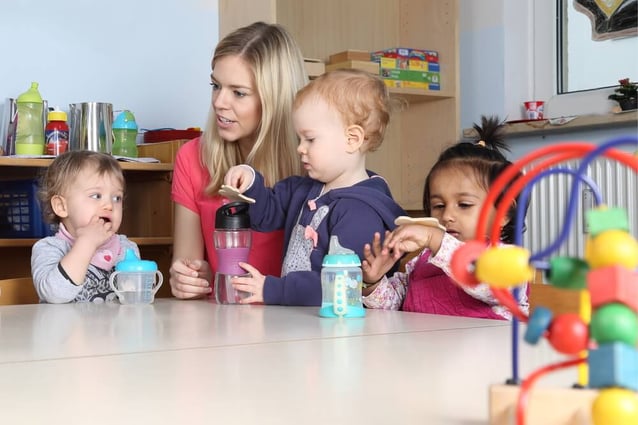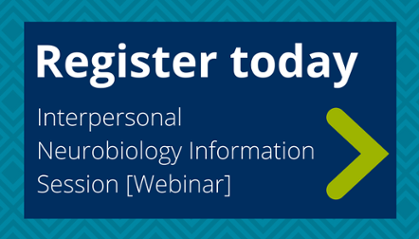
The human brain constantly develops throughout our lifetimes, starting while we're still in the womb. It forms one million neural connections every second of every day, and the body then reduces those connections to create the most efficient brain pathways.
Brain development continues well into adulthood, making up an ever-growing network. We develop our vision and hearing pathways first, then the foundations for language skills and higher reasoning tasks. However, we now know that genes are not the sole factor affecting this development. Life experiences, such as the relationships between children and their parents and other caregivers, also shape our brain development.
Understanding how children's brains develop helps parents and caretakers understand how it influences specific adolescent behavior. The science of interpersonal neurobiology, or IPNB, helps caregivers create a framework to provide better childcare.
What is Interpersonal Neurobiology?
Understanding how the brain's physical features and its chemistry interact helps explain how the brain relates to environmental factors and human emotions. Studying IPNB helps answer why people do what they do and feel how they feel.
IPNB helps:
- Improve conflict resolution,
- Heal patients suffering from trauma, and
- People grow their personal relationships.
As a definitive area of study, IPNB contrasts significantly from neuroscience. Neuroscience concerns the physical structures of the brain and the nervous system. It also concerns the function and disorders of these biological structures, covering subjects such as anatomy, molecular biology, experimental psychology, and neurochemistry.
How Does IPNB Create Better Caregivers to Help Children?
Daniel J. Siegel, the creator of IPNB, declared that the part of the brain responsible for balancing emotions and making critical decisions does not fully develop until a person attains their mid-20s. More importantly, this area of the brain forms laboriously during childhood. Therefore, emotion drives a child's brain more than logic.
Children often experience toxic stress in childhood, which may result from poverty, maternal depression, and physical and emotional abuse. All these negatively impact the architecture of the child's brain development, leading to lifelong mental health issues, learning disabilities, and behavior problems. Supportive adults surround children with a counterbalance even in toxic stress situations.
Understanding the interconnections between the brain, the mind, and the social connections in a child's life helps caregivers establish a healthy person. IPNB, for example, gives parents the tools to respond to temper tantrums. It teaches parents when to react with logic and when to use skills to control emotions. Using IPNB in relation to child care also helps parents and other caregivers minimize their frustration. In addition, they learn to exhibit more compassion as they understand the child's behavior in terms of brain development.
IPNB skills help a childcare professional or parent stay aware of the child's emotions and intentions in a given situation. So, caregivers trained in IPNB are more observant, open, and objective.
How Does Portland Community College's Certificate Program Prepare Better Child Carers?
Portland Community College's (PCC) "Foundations of Interpersonal Neurobiology (IPNB) Certificate" program explores the theoretical and practical models that pertain to:
- Human development
- Attachment and trauma
- Relationships between the mind, the body, and social relationships
IPNB courses, like PCC's, demonstrate how people:
- Learn
- Resolve conflicts
- Mend traumatic effects
- Strengthen social relationships
IPNB courses teach students to apply a comprehensive view of the mind, the brain, and the impact of social relationships that helps unlock each individual's human potential.
Take the Next Step
Studying IPNB positively impacts the way today's leaders interact with the personal relationships in their immediate sphere of influence. Even in commerce, the relationships between today's managers and employees are more team-oriented and creative than status related.
In today's schools, teachers want a deeper understanding of the reasons for their students' behaviors. Parents can also seek a more compassionate way to handle temper tantrums and other "acting out" behaviors. In either case, IPNB courses light the way for a more empathetic grasp on why children act and react the way they do.
Understanding IPNB emphasizes inclusion, leadership, and building upon the social relationships in the child's community. Students learn to maintain an awareness of the impact on development and behavioral problems stemming from:
- Broken relationships
- Abusive relationships
- Trauma
- Toxic stress
The IPNB certificate program combines neuroscience, psychology, complexity theory, environmental influences, and relationship studies. PCC designed the course to appeal to busy professionals, those who teach and guide, like leaders and parents, and those interested in continuing education.
Further Your Understanding with PCC's Course
PCC's IPNB course does not have prerequisites and is open to all who enroll in the program with the ability to participate in a college-level course. The course presents in 125 hours over two terms via Zoom. There is an in-person immersion weekend during the second term. This non-credit course does not confer a degree and does not transfer to other schools. Students may earn the certificate by joining and completing the certificate program.
We invite you to visit our website today to learn more about interpersonal neurobiology in an interactive setting. It will help provide context and understanding for people in their specific use-cases


